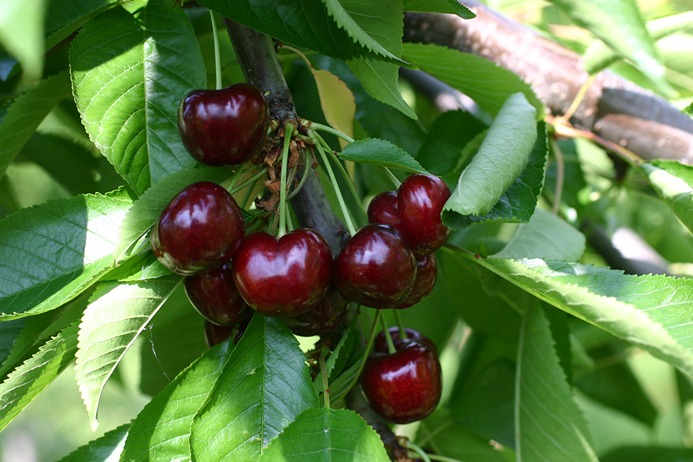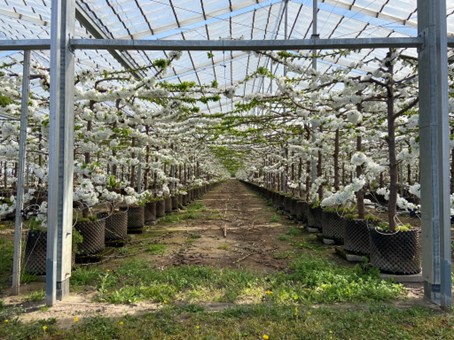Cherry Times is pleased to publish an excerpt of the reports presented at the International Congress "What biosolutions for quality cherries?" at Macfrut 2024.
Kelpak is manufactured from the unique kelp species Ecklonia maxima, which grows exclusively in the clean, cold waters off the Atlantic Coast of southern Africa. The nutrient-rich Benguela Current and powerful tidal action provide perfect conditions for the rapid growth of these giant kelp species, containing several powerful compounds with multiple favorable physiological responses benefiting plant growth and plant health.
A proprietary cold extraction method using high-pressure differentials ruptures the kelp’s cell walls, releasing the maximum level of active compounds. No destructive heat, chemicals, freezing, or dehydration is used. The result is a highly effective and natural biostimulant containing nutrients, organic acids, alginates, phlorotannins, polyamines, and brassinosteroids.
In sweet cherry production, sufficient pollination and successful fertilization are essential for fruit set and high yields. Polyamines strongly affect pollen maturation and pollen tube elongation (Aloisi et. al. 2016). Brassinosteroids have been well documented to significantly promote both pollen germination and pollen tube growth (Hewitt et al., 1985; Sotomayor et al., 2012; Maita and Sotomayor, 2015).
In recent years, scientists have also identified the active phlorotannin biomolecule, Eckol in Kelpak. When pure Eckol was applied to viable tobacco pollen at a concentration of 1 x 10-8 M, it proved to be effective in significantly stimulating pollen tube growth.
Kelpak spray dilutions used in spraying crops contain the same concentration of Eckol, which is known to improve fruit set. It is likely that this cocktail of natural bioactive compounds may act individually or in concert, contributing positive effects on fruit set elicited by Kelpak®.
Numerous field studies illustrated the effect of spring applications of Kelpak® at bloom, improving cherry yield significantly. This result was supported by an in vitro study conducted by Papenfus (2016, int. data) on ‘Bing’ cherry pollen, where a significant increase in pollen germination and pollen tube length were recorded.
For optimal results, Kelpak is applied during flowering at full bloom (BBCH 65), petal fall (BBCH 67), and shuck split/fruit set (BBCH 71). To further increase cherry fruit size, Kelpak is applied at straw color fruit (BBCH 81) and repeated ~7 days later. The recommended application dosage at all stages is 3L/ha, maintaining a 0.3% dilution rate when spray volume per ha is more than 1000 L/ha.
Kelpak is now approved under the European Union’s new Fertilizing Product Regulation (FPR) No. 2019/1009, Product Function Category 6, Plant biostimulant (non-microbial) for improving fruit set in all fruit crops. Kelpak is also approved for use in organic farming according to the EU, NOP, and JAS regulations.
To download the PDF click here
Fonte: Kelpak
Immagine: SL Fruit Service
Cherry Times - All rights reserved










